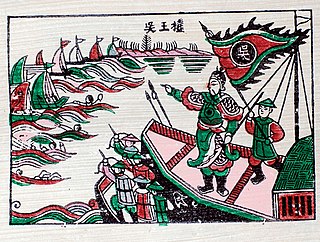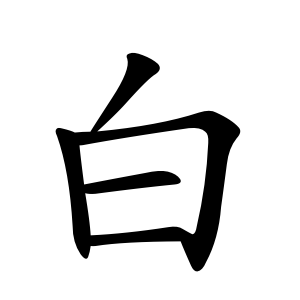Vietnamese personal names generally consist of three parts: one patrilineal family name, one or more middle name(s), and one given name, used in that order. The "family name first" order follows the system of Chinese names and is common throughout the Chinese cultural sphere. However, it is different from Chinese, Korean, and Japanese names in the usage of "middle names", as they are less common in China and Korea and do not exist in Japan. Persons can be referred to by the whole name, the given name or a hierarchic pronoun, which usually connotes a degree of family relationship or kinship, in normal usage.

Bach Long Vi island is located in the Gulf of Tonkin, about halfway between Hai Phong (Vietnam) and Hainan Island (China). The island is an offshore district of Haiphong City. Fishing comprises the majority of economic activity in the Gulf of Tonkin, and Bach Long Vi is a major nursery and harvesting area for fish eggs. More than 50 species of commercial fish are abundant in the area.

The Battle of Bạch Đằng was one of the greatest victories in Vietnamese military history. It was a battle between Đại Việt, commanded by Supreme Commander Trần Hưng Đạo, and the invading army of the Yuan dynasty, commanded by general Omar Khan. The Battle of Bạch Đằng was the last confrontation between Đại Việt and the Yuan dynasty. The battle took place at the Bach Dang River, near Ha Long Bay in present-day northern Vietnam. The battle was a tactical masterpiece of the same stature as the other battle at Bach Dang River.
There have been three Battles of Bạch Đằng recorded in the history of Vietnam:

Ngô Quyền was a Vietnamese king of Ngô dynasty who ruled from 939 to 944. He defeated the Southern Han kingdom at the Battle of Bạch Đằng River north of modern Haiphong and ended 1,000 years of Chinese domination dating back to 111 BC under the Han dynasty. A central district in modern Haiphong is named after him.

At the Battle of Bạch Đằng River in 938 near Hạ Long Bay in northern Vietnam the rebel Vietnamese forces, led by Ngô Quyền defeated the invading forces of the Southern Han state of China and put an end to centuries of Chinese imperial domination in Vietnam.

Lê Hoàn, posthumous name Emperor Đại Hành (大行皇帝), was the first emperor of the Early Lê dynasty, succeeding the Đinh dynasty as rulers of Đại Cồ Việt.
The Battle of Bạch Đằng river or China - Đại Cồ Việt war 981 was a military conflict between the Song dynasty of China and the Early Lê dynasty of Vietnam at the Bach Dang River in January to April 981. As the result, Đại Cồ Việt got victory over Song dynasty
Dang is a Chinese, Vietnamese, Korean, Indian and German surname. It thus has its sources from both Asiatic languages and Indo-European languages. The two branches are thought to be unrelated.

Đại Việt is the name of Vietnam for the periods from 1054 to 1400 and 1428 to 1804. Beginning with the rule of Lý Thánh Tông, the third emperor of the Lý Dynasty, until the rule of Gia Long, the first emperor of the Nguyễn Dynasty, it was the second-longest used name for the country after "Văn Lang".
Lê Trung Tông was the second emperor under the Early Lê Dynasty. He held the throne for only three days in 1005. His reign was considered one of two shortest reigns in Vietnam's history, along with the reign of Dục Đức under the Nguyễn Dynasty.
Hòa An is a rural district (huyện) of Cao Bằng Province in the Northeast region of Vietnam.
Ngô Quyền is an urban district (quận) of Hai Phong, the third largest city of Vietnam. It is named after King Ngô Quyền who defeated the Chinese at the famous Battle of Bạch Đằng River north of modern Haiphong and ended 1,000 years of Chinese domination dating back to 111 BC under the Han Dynasty.

The Bạch Đằng River, also called Bạch Đằng Giang, white wisteria river, is a river in northern Vietnam, located near Hạ Long Bay. It flows through the Yên Hưng District of Quảng Ninh Province as well as the Thủy Nguyên District of Haiphong.
Kiều Công Tiễn or Kiểu Công Tiện was a general in the court of Dương Đình Nghệ, a Vietnamese Jiedushi of Tĩnh Hải quân who took over the position in 931. In 937 Kiều Công Tiễn assassinated the Jiedushi to seize his position and thus provoked a revolt led by Ngô Quyền who sought revenge his lord and father-in-law Dương Đình Nghệ. In response to the attack, Kiều Công Tiễn appealed to Liu Yan, the emperor of Southern Han, for reinforcements but he was defeated and executed by Ngô Quyền before the army of Southern Han entered the country. Later, Ngô Quyền had a decisive victory over the Southern Han in the Battle of Bạch Đằng River and marked the independence of Vietnam from Chinese authorities.

Đàng Trong, also known as Nam Hà, was an area of Vietnamese southwards expansion, later enlarged to become Cochinchina, during the 17th century Trịnh–Nguyễn War. The word "Đàng Trong" first appeared in the Dictionarium Annamiticum Lusitanum et Latinum by Alexandre de Rhodes.
The Chinh phụ ngâm is a poem in classical Chinese written by the Vietnamese author Đặng Trần Côn (1710-1745). It is also called the Chinh phụ ngâm khúc (征婦吟曲), with the additional -khúc emphasizing that it can be performed as a musical piece not just read as a plain "lament".

Mạc Đăng Dung, posthumous name Mạc Thái Tổ (莫太祖), was an emperor of Vietnam and the founder of the Mạc Dynasty. Previously a captain of the imperial guard of one of the Lê Dynasty emperors, he gradually rose to a position of great power. Mạc eventually deposed the last Lê monarch and became a monarch himself.

Phạm Bạch Hổ was a warlord of Vietnam during the Period of the 12 Warlords.













